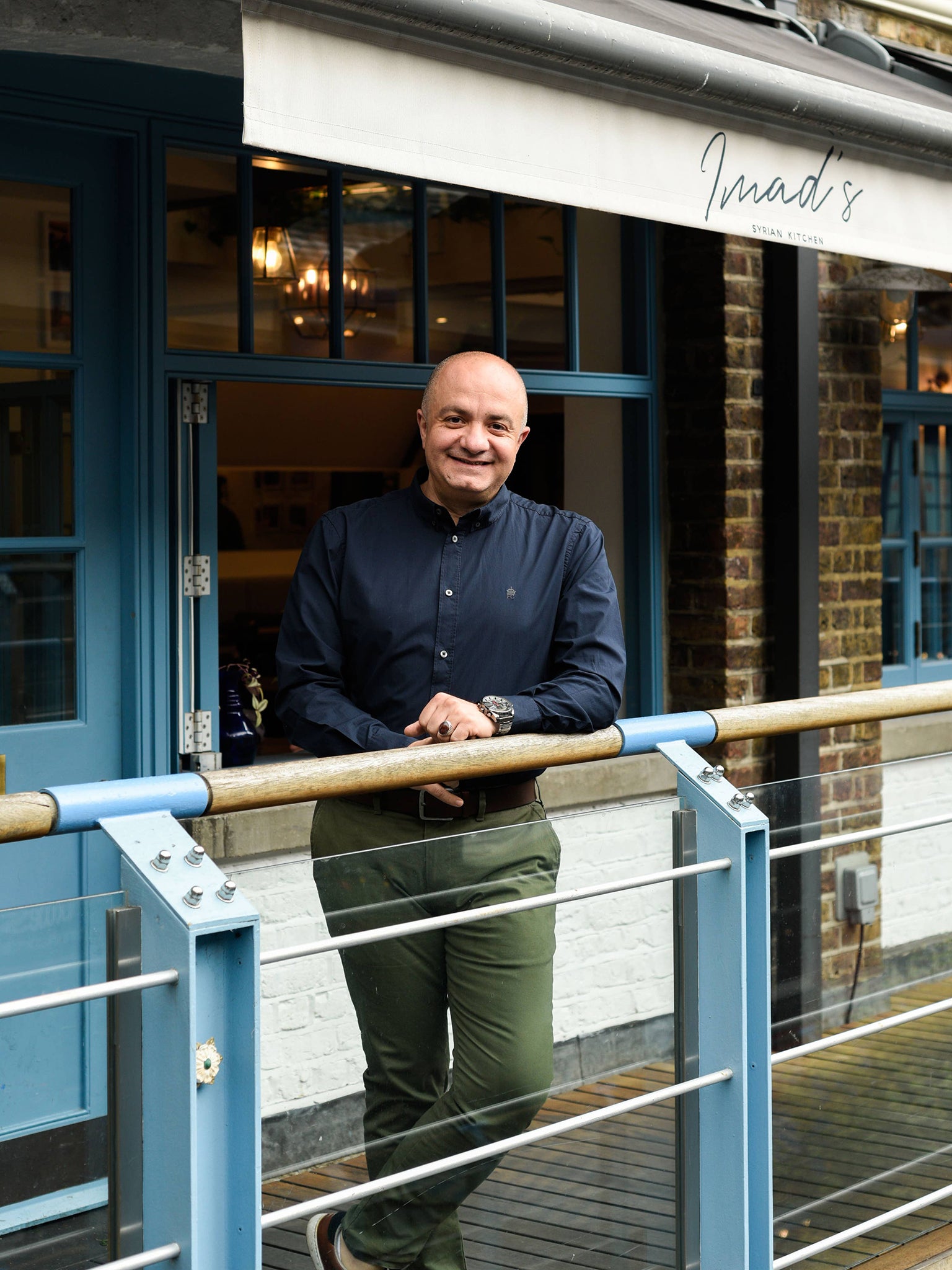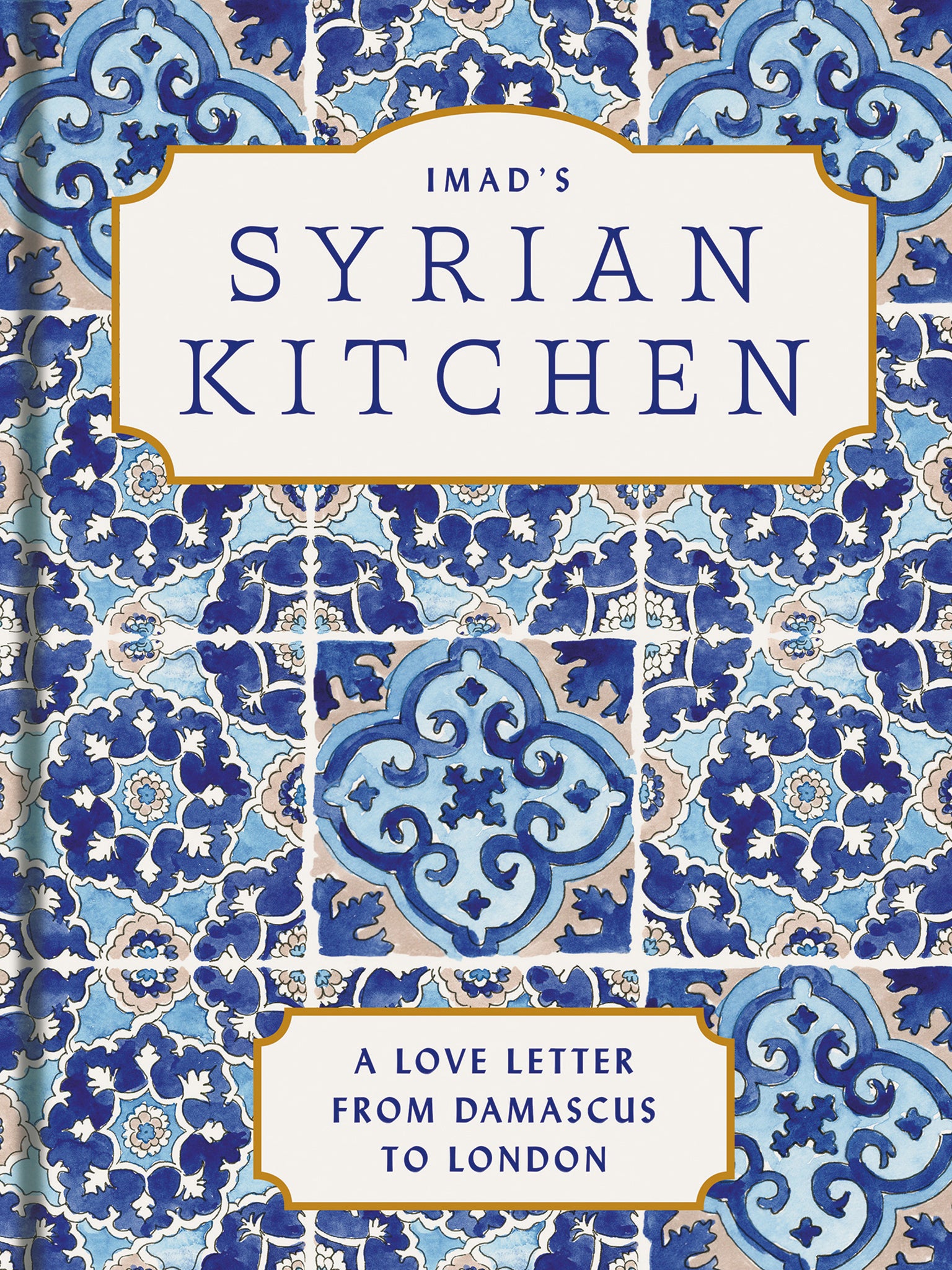Imad Alarnab: In The Jungle, food restored our faith
When he was stranded as a refugee in Calais, London chef Imad Alarnab cooked for 400 people every night. Eight years later, his debut cookbook finally tells the story. Lauren Taylor writes

Your support helps us to tell the story
From reproductive rights to climate change to Big Tech, The Independent is on the ground when the story is developing. Whether it's investigating the financials of Elon Musk's pro-Trump PAC or producing our latest documentary, 'The A Word', which shines a light on the American women fighting for reproductive rights, we know how important it is to parse out the facts from the messaging.
At such a critical moment in US history, we need reporters on the ground. Your donation allows us to keep sending journalists to speak to both sides of the story.
The Independent is trusted by Americans across the entire political spectrum. And unlike many other quality news outlets, we choose not to lock Americans out of our reporting and analysis with paywalls. We believe quality journalism should be available to everyone, paid for by those who can afford it.
Your support makes all the difference.Food can bring people comfort in the darkest times, and for Imad Alarnab, this time came when he was stranded as a refugee in Calais for more than two months.
A hot plate had been donated, people collected leftovers from supermarkets, and having been a successful chef back in Damascus – with three restaurants, and a string of cafes and juice bars – Alarnab did what he did best, night after night, he cooked.
“It was just something I felt like I needed to do, because you get to make a lot of people happy. Especially at that time, they needed something to be happy about,” says the 45-year-old, who would feed as many as 400 people at a time.
The overcrowded camp that became known as The Jungle was close by, but Alarnab says it was too terrifying and overcrowded, so he and a group of several other Syrians slept on the steps of a church instead. And it was here he cooked the food of home – adapted, of course, depending on what they had.
“To have a decent warm meal – for people whose lives have been on hold, they can’t cross to safety – was a big deal for all of us,” says the father-of-three.
In fact, it was the first time he’d cooked for lots of people since all of his businesses were bombed within a week in 2012, in the country’s civil war, and this was the moment hope returned. “I think it restored all of the faith that things could, and would, get better,” Alarnab writes in his debut cookbook, Imad’s Syrian Kitchen.
By July 2015, he’d made the painful decision to leave his wife and three daughters in Damascus to make the treacherous journey via Lebanon, Greece and North Macedonia, to the UK, where they had relatives. With his children too young to make the journey, the family planned to join once he’d been granted asylum.
“If I had any other choice, I would have definitely taken it. [Fleeing] wasn’t the easiest but it was somehow the safest,” he says. “When I was in Syria during the war, people were saying, ‘It’s not safe to go out of the house because maybe you’re going to die’. But I needed to feed my family, if I stayed in the house they would die from hunger. There’s no good choice or bad choice, but maybe it’s the only one you can make.

“When I was leaving Damascus, my oldest daughter made me promise I would see her within one year. I said, ‘Yes, I promise,’ but I wasn’t really sure if I was going to keep that promise or not.”
And during the three months before he reached the UK – walking hundreds of miles on foot, on train, in the back of cars, on push bike, at the mercy of smugglers, with false IDs and the kindness of strangers – there were moments of doubt, like when he was crammed in the back of a lorry in Turkey for seven hours.
“There were about 95 of us, I felt it was a stupid decision, risking my life so much. I believe the driver was so scared, or maybe drunk – the speed was absolutely scary. I thought we were not going to make it.”
His journey ended eventually by using a fake passport to cross the Channel in October 2015 (the moving, often harrowing, story is weaved through his new cookbook), and first finding work illegally in a car wash, where he also slept as an overnight security guard, sending money home.
After his family were able to emigrate (just under the year he’d promised his daughter) someone introduced him to the Cook For Syria scheme – and soon he was hosting super clubs at his house. By May 2021, he’d opened his London restaurant, Imad’s Syrian Kitchen.
His first cookbook is a combination of dishes served up at the restaurant and his late mother’s recipes. “Almost every single dish is somehow related to my mother – I keep seeking her approval in everything I do in life, but especially with cooking,” he says. It was his mum, Summer, who first taught him to cook. “Even if you create your own recipes, somehow you will [always] be inspired by your first teacher”. She died very suddenly while Alarnab was living alone in a caravan in west London.
Syrian food at its heart is “simple, first of all, and affordable for everyone”, he says. “We use a lot of mild spices, not very hot spices.” They’re mostly things you’ll know; “cumin, mint, garlic, nothing really special about it. [but] you put it together in a special way”.
Middle Eastern in identity, much of it might feel familiar; tabbouleh, hummus, baklawa; while traditional dishes include buttered halibut, jaj bailfurn (grilled chicken thighs) and kippeh (lamb and bulgur wheat dumplings). Lunch is typically a feast of many dishes. “We’re a family of five and we never ever have one dish for lunch,” says Alarnab. “And we don’t throw anything away.” Before the war – which began as an uprising against President Bashar al-Assad in 2011 but has since involved a complex number of groups fighting one another, including so-called Islamic State, leaving at least 11 million people displaced – Alarnab was one of the lucky ones, he says.

“We had a comfortable life, but most people in Syria were suffering. When you have a dictatorship for more than 50 years, of course people will be suffering. You cannot explain life without freedom to someone who’s lived all of their life with it.
“People keep asking me silly questions – ‘Why did you have to go to 10 different countries to come to the UK? You could just get a plane ticket straight from Lebanon to Heathrow’. No, it doesn’t work like that. As a Syrian, my passport takes me to three countries – war zone countries. Even if I wanted to go to every country supporting Assad, I’d still need a visa.”
Once the fighting started, food, that once brought him so much joy, lost all meaning. “I don’t know how to describe it, but the food tasted like blood. I know it’s disgusting, but nothing tasted the same. When you live in fear for your family, when your daughters are not safe to go to school, food will taste [bad], nothing can make you happy.”
Cooking Syrian food now makes him feel “connected” to his home country, of course, “but it also makes me feel part of this unique community in the UK”. Arriving in London, he says: “I felt safe, I felt ‘I can be different, I can be myself, no one cares’. Everyone’s so different, it makes all of us lookalike.”
Even after starting from scratch in a new country after losing everything, with a highly-acclaimed restaurant and now a cookbook, he’s most proud of his daughters. His eldest is studying at Warwick University after gaining straight As, his middle child is a talented artist. “The youngest [13] is the naughty one still,” he laughs. “But you can feel they appreciate their life – they are so happy about it.”
‘Imad’s Syrian Kitchen’ by Imad Alarnab (HQ; £26).
Join our commenting forum
Join thought-provoking conversations, follow other Independent readers and see their replies
Comments